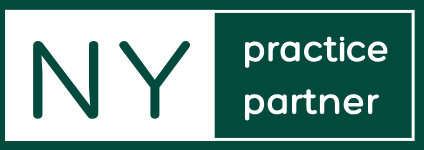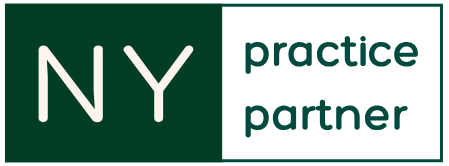Have you ever wondered how healthcare providers get approved to treat patients or how insurance companies know if a doctor is qualified? The answer is credentialing. It’s a process that makes sure doctors, nurses, and other healthcare providers meet certain standards and are qualified to do their jobs.
In this guide, we’ll explain what credentialing is, why it’s so important, and how it affects healthcare practices. Whether you’re a new provider, a manager, or someone working in a healthcare practice, understanding credentialing is key to keeping things running smoothly.
What is Credentialing in Healthcare?
At its core, credentialing is about making sure that healthcare providers have the right training, experience, and certifications. It’s like a background check to confirm that the person is qualified to treat patients. The process includes checking things like:
- Education: Did the provider graduate from a recognized school or program?
- Experience: Do they have the necessary work experience?
- Licenses and Certifications: Are they licensed and do they have any special certifications needed for their specialty?
In short, credentialing ensures that the healthcare provider is qualified and trustworthy to give medical care.
Why is Credentialing Important in Healthcare?
From my experience, credentialing is crucial for a few key reasons:
- Patient Safety: Credentialing helps ensure that only qualified providers are seeing patients. This helps keep patients safe and ensures they are getting the best possible care.
- Insurance Reimbursement: Insurance companies need to know that the healthcare provider is qualified before they will pay for services. Without proper credentialing, insurance claims can be denied, leading to lost income for the practice.
- Legal and Regulatory Requirements: Healthcare practices must meet certain rules and regulations. Credentialing helps them stay compliant with these requirements.
I’ve seen firsthand how a lack of credentialing can cause delays and even lead to financial problems for healthcare practices. One example I remember was a small clinic that had trouble getting paid because one of their new doctors hadn’t completed the credentialing process. The insurance companies wouldn’t reimburse them until the doctor was fully approved. This caused delays in payments and created a lot of stress for the office manager.Read a Detailed artilce about Why is Credentialing Important in Healthcare.
How Does Credentialing Work?
Here’s a simple breakdown of how the credentialing process typically works:
- Provider Submits Information: First, the healthcare provider (or their practice) submits an application with all the necessary documents, including education, work experience, licenses, and certifications.
- Verification: The credentialing agency or insurance company will verify this information. They may check the provider’s school, past employers, and licensing boards to confirm that everything is accurate.
- Approval: Once everything is verified, the provider is officially approved by insurance companies or hospitals. This step can take a few weeks to a few months, depending on how many organizations are involved.
- Re-Credentialing: Credentialing isn’t a one-time thing. Providers usually need to be re-credentialed every few years to ensure their information is up-to-date.
Why Does Credentialing Impact Your Practice’s Financial Health?

In my experience, credentialing plays a huge role in a practice’s financial health. If a provider is not credentialed correctly, the practice may face:
- Claim Denials: If the provider isn’t listed with the right insurance companies, claims may be denied, meaning the practice won’t get paid for the services.
- Delayed Payments: Even if claims are approved, without proper credentialing, payments from insurance companies can be delayed for months, which can hurt cash flow.
I worked with a practice that was struggling with these exact issues. Their physician wasn’t credentialed with the insurance companies they worked with, and the practice lost thousands of dollars in unpaid claims. Once the credentialing process was sorted out, their revenue flow became much more predictable and steady.
Credentialing also helps practices avoid legal problems. If providers are not properly credentialed, they may not be following the law, which can lead to fines or other issues.
How Can You Streamline the Credentialing Process?
Credentialing can seem like a long and complicated process, but there are a few things you can do to make it easier:
- Use Credentialing Services: There are companies that specialize in handling credentialing. These companies can help you speed up the process and ensure that everything is done correctly.
- Stay Organized: Keep track of all documents related to the credentialing process, like licenses, certifications, and application forms. Being organized can help you avoid delays.
- Plan Ahead: Credentialing can take a while, so it’s important to start the process early. I recommend starting at least 6 months before a new provider starts seeing patients.
- Use Software: There are credentialing software systems that can help track deadlines, manage documents, and make the process more efficient.
By using these strategies, you can make the credentialing process smoother and ensure your practice is in good financial shape.
What Happens If Credentialing Goes Wrong?
Sometimes things don’t go as planned, and credentialing mistakes happen. Here are a few things that can go wrong:
- Missing Paperwork: If paperwork is lost or not submitted on time, it can delay the process. This can lead to denied claims and delayed payments.
- Incorrect Information: If the application contains mistakes, it could lead to rejection or even legal issues down the line.
- Lack of Follow-Up: If credentialing isn’t followed up on regularly, a provider’s status could lapse, leading to a loss of insurance coverage.
If credentialing issues happen, it’s important to fix them quickly. Sometimes, working with a credentialing service can help resolve these problems more efficiently.
Conclusion: Why Credentialing Matters
Credentialing is a key part of making sure healthcare providers are qualified to care for patients and ensuring that your practice gets paid for its services. Whether you are a new practice or a growing one, making sure all your providers are properly credentialed is essential to your financial health and compliance.
If you’re ready to get started or need help with the credentialing process, working with a credentialing service can save time and reduce stress. It’s worth the effort to get it right, so your practice can thrive.








